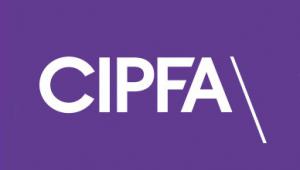In a series of “manifestos” published ahead of next Thursday’s elections for the devolved administrations, CIPFA calls for better alignment of public services to eradicate waste and improve outcomes; a citizen-centred approach to service delivery; better integration of financial planning between different administrative levels; and improved financial information.
The papers note that both Scotland and Wales will assume new tax powers under the latest tranches of devolution, while Northern Ireland is facing a 5.3% real terms budget cut by 2019-20.
CIPFA’s prescriptions are notably explicit in the document for Scotland, where new fiscal powers brought in under the 2016 Scotland Act will put Holyrood in charge of almost half the revenues raised in Scotland during the course of coming parliament.
“In practical terms this means that the monitoring of incoming revenues, expenditure forecasts and the consequences of adjustments to block grant funding will have to be managed,” the paper says. “The people of Scotland will expect quality public services to be delivered and will look for improvements as a result of these powers.
“In CIPFA’s opinion, the combination of Scotland’s new suite of fiscal powers and the ingenuity to design modern progressive public services can together be a powerful force for change.”
But it insists that better collaboration and information-sharing between service providers will be essential to make these changes happen. “Alignment of public service delivery will drive lower costs, but this is not inconsistent with improved outcomes,” it says.
The paper acknowledges that Scotland’s fiscal structure already benefits from a robust performance management framework, but sees a need for continued reform to deliver “modern, progressive public services which focus on the needs of the Scottish citizen”.
It calls for better, more integrated, more long-term and more transparent financial planning: “The current budget process is largely reliant on an incremental system of budget compilation. That system does not support a more modern, outcome-based approach.”
Increased financial powers demand greater transparency, CIPFA says. “The focus of scrutiny of the public finances will need to be rebalanced from spending on public services to include revenue raised, borrowing levels and future long-term sustainability of the devolved government’s finances.”
The institute is calling on ministers to make transparency in using the fiscal powers “a central component” of a future Scotland: “The development of a ‘whole of Scotland’ set of financial statements, including a balance sheet for Scotland, should be implemented.”
Don Peebles, head of CIPFA Scotland and devolved government, told Public Finance: “Modernisation is particularly vital around sectoral barriers. Too often they get in the way of better services.
“The integration of health and social work provision must set the course. We need to make sure that there’s full collaboration and sharing of information between central government, local government, agencies and third sector service providers.”





















